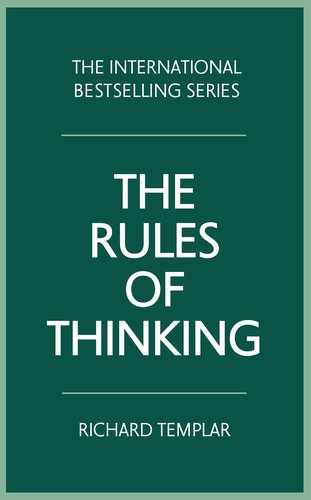So it’s not good to let your emotions get the better of you if you want to make the best decision. But interestingly, it’s not good to remove all emotion from the exercise either.
Research has been done with people who have suffered brain damage that makes them unable to feel emotions. And one thing they all have in common is that they can’t make decisions. They can rationalise all the arguments, but they don’t know how to plump for a particular choice. Neuroscientists have concluded that this is because very few decisions are without any kind of emotional component. Even choosing between coffee and tea, or cereal and toast, becomes almost impossible if you can’t bring your emotions into play. So where does that leave you when you’re choosing a job or a house or a car, let alone whether to have children or whether to end a relationship?
There’s a common fallacy that emotions are irrational, and decision making should be a rational process – therefore leaving no room for emotions. The last Rule made it very clear how it’s possible for emotions to get in the way of good decisions, but so does an absence of emotion. Your feelings do several important jobs when it comes to deciding what to do.
For one thing, without any emotional input, it’s very hard to know how much importance to attach to all your research and information. Does this factor outweigh that one? Is this data as relevant as that? Is it worth taking an exciting and career-enhancing job in the USA, given that you won’t be able to buy Marmite there? Should you buy this perfect flat that ticks all your boxes, even though it’s three floors up and there’s always a possibility the lift might break down? I’m using extreme examples to make my point: without emotion, how can you balance your career against Marmite?28 In the same way, how can you assess the risks accurately without any emotional input? (We’ll look at risk in more detail in Rule 91 by the way.)
Emotion can be a key part of the overall question too. Suppose that flat ticks all the practical boxes, but you’re afraid you might be lonely that far from your friends? That fear – and that potential for loneliness – are important considerations. They can’t be quantified rationally either. Are you slightly anxious that you might be a bit isolated until you’ve made new friends or are you dreading the possibility you might be permanently unhappy? Those are answers only you can give, and only on an emotional level. And they’re just as important as all the practical factors (as you’ll have established by using your emotional judgement to weigh them up).
Another important reason for making decisions with an emotional ingredient is that you’ll feel (yes, an emotion word) much more investment in the decision if you have considered it emotionally. You’ll buy into it, be far more committed to making it work, and your approach to it will be more positive.
So you have to balance emotional and rational thinking. The crucial thing is that you are self-aware about this, and you understand the role your emotions are playing.
THERE’S A COMMON FALLACY THAT EMOTIONS ARE IRRATIONAL, AND DECISION MAKING SHOULD BE A RATIONAL PROCESS
_________________________
28 I’m implying here that the choice should be obvious, but actually I suspect my editor would follow the Marmite. [Yes, I would! – Ed]
